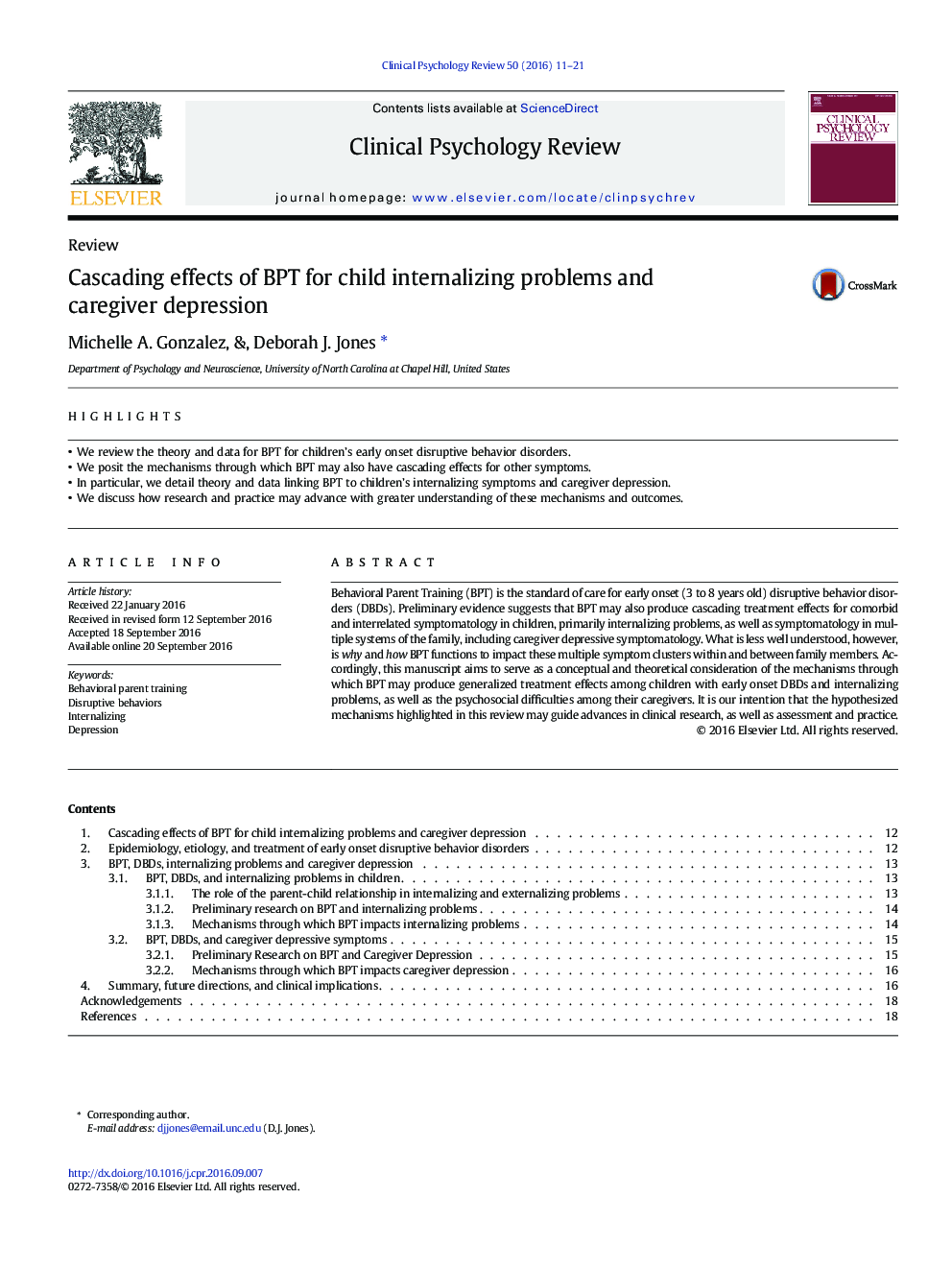| Article ID | Journal | Published Year | Pages | File Type |
|---|---|---|---|---|
| 5038483 | Clinical Psychology Review | 2016 | 11 Pages |
â¢We review the theory and data for BPT for children's early onset disruptive behavior disorders.â¢We posit the mechanisms through which BPT may also have cascading effects for other symptoms.â¢In particular, we detail theory and data linking BPT to children's internalizing symptoms and caregiver depression.â¢We discuss how research and practice may advance with greater understanding of these mechanisms and outcomes.
Behavioral Parent Training (BPT) is the standard of care for early onset (3 to 8Â years old) disruptive behavior disorders (DBDs). Preliminary evidence suggests that BPT may also produce cascading treatment effects for comorbid and interrelated symptomatology in children, primarily internalizing problems, as well as symptomatology in multiple systems of the family, including caregiver depressive symptomatology. What is less well understood, however, is why and how BPT functions to impact these multiple symptom clusters within and between family members. Accordingly, this manuscript aims to serve as a conceptual and theoretical consideration of the mechanisms through which BPT may produce generalized treatment effects among children with early onset DBDs and internalizing problems, as well as the psychosocial difficulties among their caregivers. It is our intention that the hypothesized mechanisms highlighted in this review may guide advances in clinical research, as well as assessment and practice.
